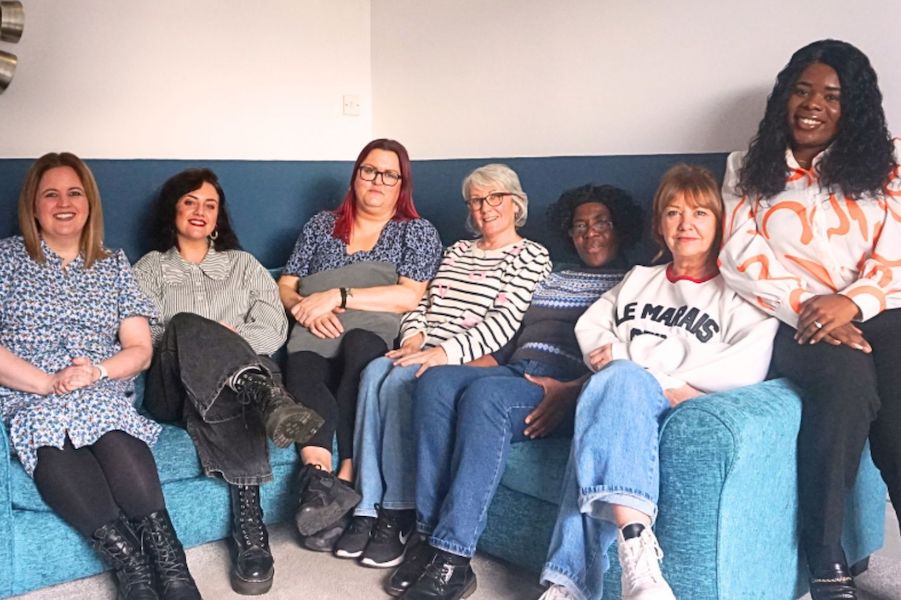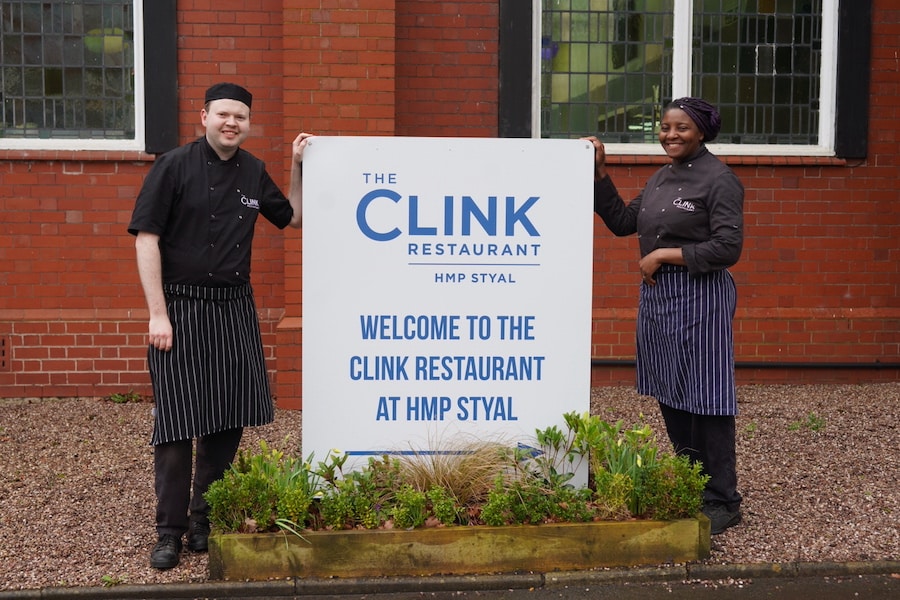How the Cheshire Cat company is transforming the local pub scene with its award-winning inns
- Written by Ray King
- Last updated 6 years ago
- Cheshire, Food & Drink
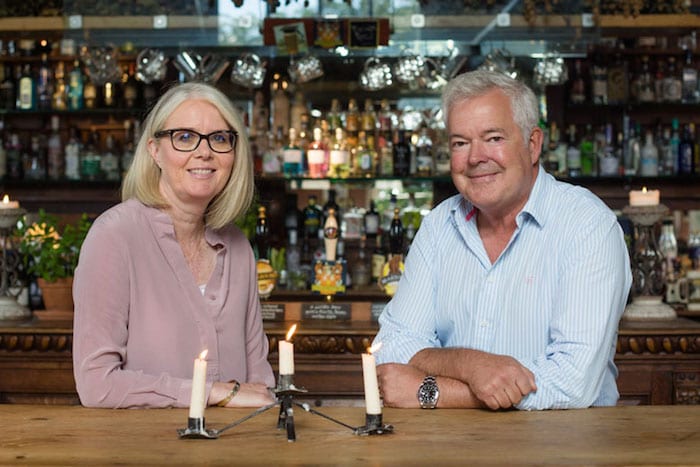
No wonder the Cheshire Cat Pub and Bar company has a beaming grin on its face.
The company is the proud owner of The Church Inn in the sylvan Domesday Book village of Mobberley, just over the Cheshire border from Manchester Airport. Earlier this year the Church Inn was named best pub in the UK 2019/20 by Pub and Bar Magazine, repeating the award first bestowed in 2016/17.
But unlike the mythical moggie in Lewis Carroll’s Alice in Wonderland, this Cheshire Cat ain’t going to disappear anytime soon.
Remarkably The Church Inn isn’t the only Cheshire Cat pub in this village of just 3,000 souls. The company has TWO more: the Roebuck, dating back to 1708 and re-opened in 2016 after a lengthy closure and, just across the road, the Bull’s Head, restored in 2010 soon after the company was founded.
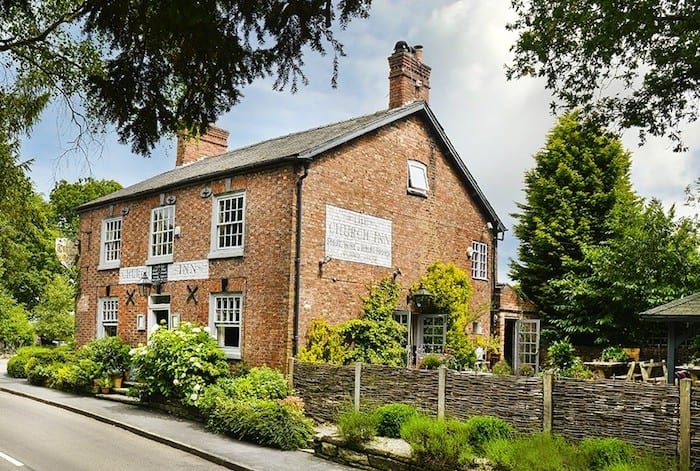
But if Cheshire Cat Pubs and Bars is a relative newcomer on the scene, the married couple behind its launch and award-winning success are among the most experienced operators in the industry.
The irrepressible Tim Bird spent nine years with Grand Met’s Berni Inns, became operations manager for Dorset Brewer Devenish then came to the north west when Greenalls took them over. By 1997 he was in charge of 450 of their pubs. In 2000 he turned round the fortunes of Morrell’s of Oxford and was later tasked with expanding the Brunning and Price gastropub brand, which ran many pubs in Cheshire, for the Restaurant Group.
His wife Mary McLaughlin had also been with Devenish and Greenalls, having spent her early career with Disney in Paris and Harrods, before becoming managing director of La Tasca, growing the Manchester-founded Spanish restaurant brand from three to over 70 locations.
By 2009 Tim was ready for a change and Mary had completed a project with Vapiano restaurants, so they decided to go it alone and founded Cheshire Cat. Ironically the first pub they bought was in Weymouth – the former brewery tap of their old Dorset employer Devenish.
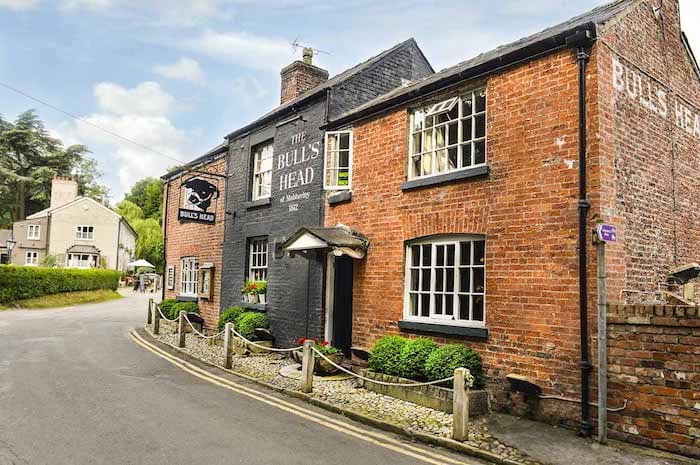
But it was the restoration of the “dying” Bull’s Head in Mobberley that really set the ball rolling and got the Cheshire Cat grinning. Home of Mobberley Wobbly ale – a key ingredient of the “Bully’s” signature beef and ale pie – the revamped pub was an instant success.
Maybe it was the popular car clubs based at the Bull’s Head that attracted the attention of the speed enthusiast Marquess of Cholmondeley, but he approached the couple to take over the Cholmondeley Arms, which had fallen on hard times, on his estate near Malpas.
“I think he wanted successful entrepreneurs to take it on,” says Tim. “When it was first converted from a school, the food at the ‘Chum’ was an inspiration for Brunning and Price.”
When he went to look it over, Tim was confronted by the formidable figure of Clarissa Dickson-Wright of TV’s Two Fat Ladies, who was a regular visitor to the pub.
“She told me that if she saw an outside catering van in the car park I’d be for it,” said Tim. “I’m pleased to say that later she told me the place had never cooked better.”
In 2012, Tim and Mary rescued the 300-year-old Three Greyhounds Inn, the last pub in the village of Allostock between Knutsford and Holmes Chapel, which had closed down and was on its way to extinction. It is now thriving again.
The 18th Century Church Inn was reopened in June 2013 after being acquired in a near derelict state by Tim and Mary. “We took it back to the bare bones during the refurbishment,” says Tim.
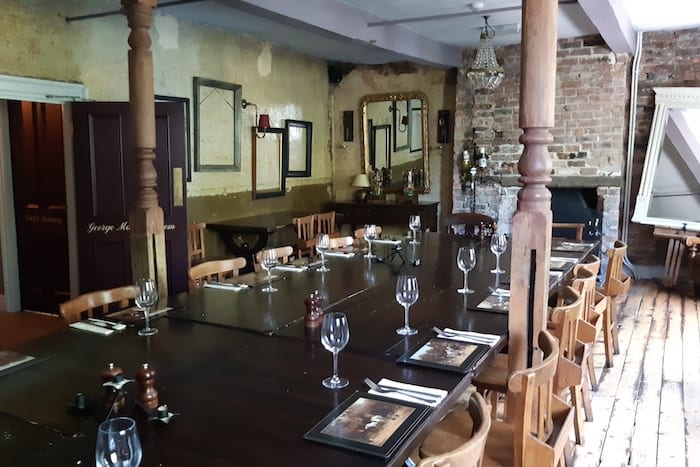
But the plaudits have come thick and fast for the pub, which boasts delightful outside seating areas, and a series of intimate dining rooms with restored fireplaces.
Upstairs is the George Mallory Room – a tribute to the mountaineer lost on Everest in 1924, Mobberley’s most famous son – and the Chef’s Library, characterful private dining rooms.
Having been approached by Lord Stafford to weave their magic, Tim and Mary opened the Fitzherbert Arms, dating from 1818, in the village of Swynnerton in February 2016, while the re-opening of the Mobberley’s Grade II Roebuck Inn in May made it a double that year.
“It was a complex restoration that took 18 months to complete but it was very important to do justice to this incredible place,” says Tim. “We wanted to create a small boutique hotel [The Roebuck has six rustic bedrooms] and an intimate French-style bistro in an old English village inn.”
He added: “All the pubs are different with different menus and he want them to become institutions enjoyed not just by the locals, but people who come to visit from far and wide.
“We don’t see Cheshire Cat as a chain, but as a collection of individual pubs with their own unique characteristics.”
- This article was last updated 6 years ago.
- It was first published on 2 August 2019 and is subject to be updated from time to time. Please refresh or return to see the latest version.
Did we miss something? Let us know: press@ilovemanchester.com
Want to be the first to receive all the latest news stories, what’s on and events from the heart of Manchester? Sign up here.
Manchester is a successful city, but many people suffer. I Love Manchester helps raise awareness and funds to help improve the lives and prospects of people across Greater Manchester – and we can’t do it without your help. So please support us with what you can so we can continue to spread the love. Thank you in advance!
An email you’ll love. Subscribe to our newsletter to get the latest news stories delivered direct to your inbox.
Got a story worth sharing?
What’s the story? We are all ears when it comes to positive news and inspiring stories. You can send story ideas to press@ilovemanchester.com
While we can’t guarantee to publish everything, we will always consider any enquiry or idea that promotes:
- Independent new openings
- Human interest
- Not-for-profit organisations
- Community Interest Companies (CiCs) and projects
- Charities and charitable initiatives
- Affordability and offers saving people over 20%
For anything else, don’t hesitate to get in touch with us about advertorials (from £350+VAT) and advertising opportunities: advertise@ilovemanchester.com

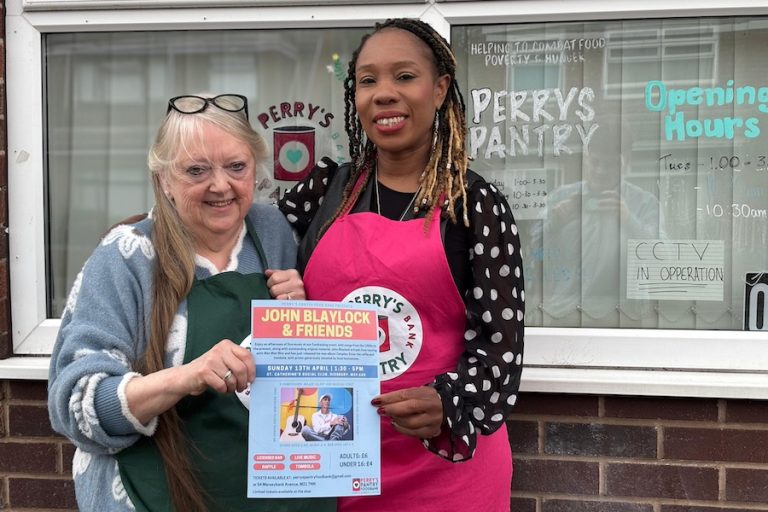

The eclectic group that’s been helping writers cut their teeth for 50 years

“His presence will be deeply missed” Children’s hospice bids farewell to their visionary CEO

Has Gordon Ramsay created Manchester’s ultimate bottomless brunch?







